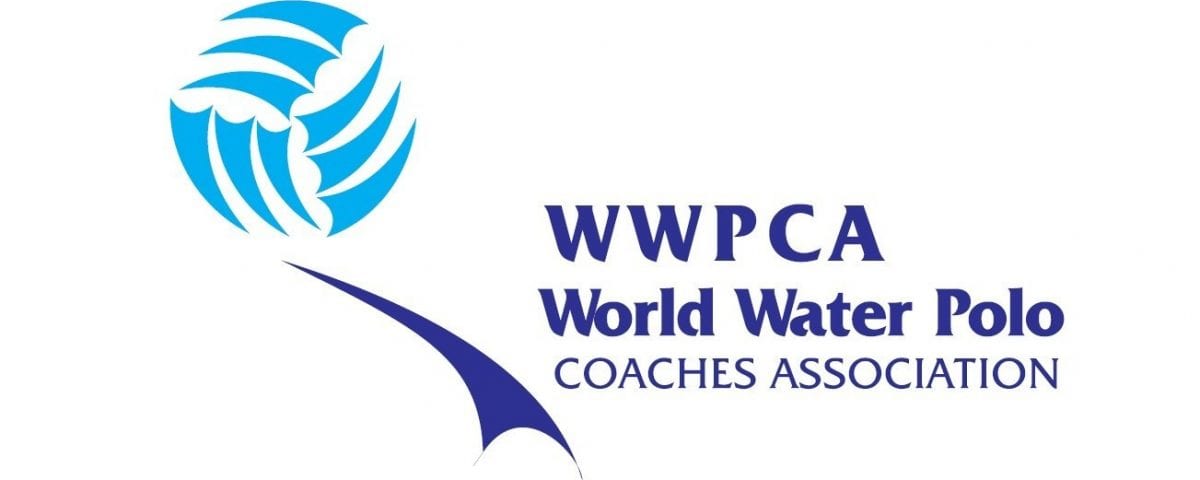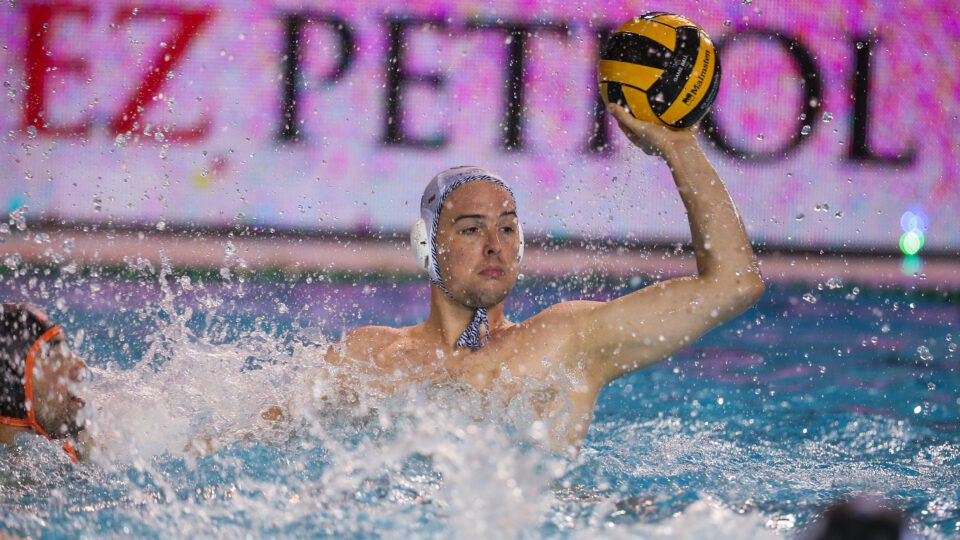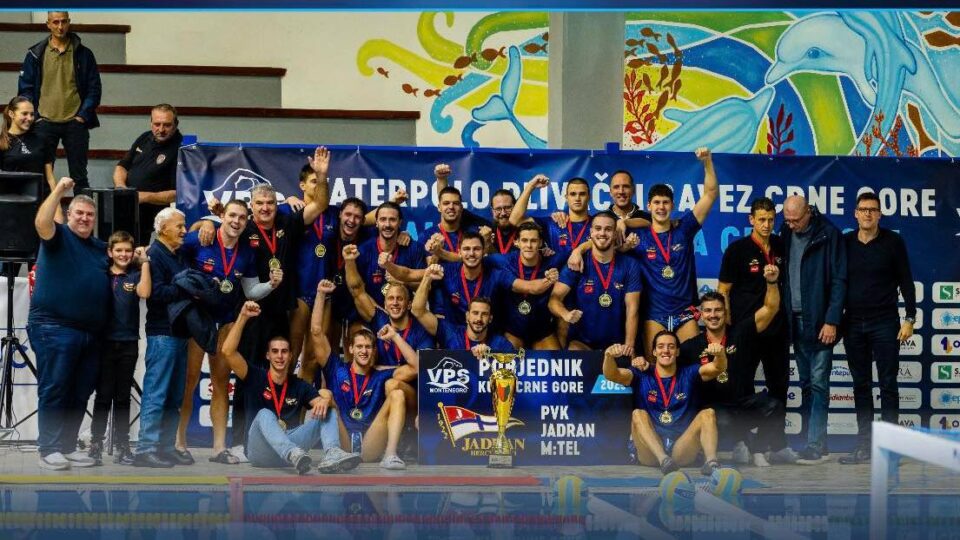The World Water Polo Coaches Association (WWPCA) issued an open letter to FINA TWPC and Water Polo Liaison at FINA Bureau, with its observations and recommendations about implementations of the new rules.
The WWPCA Board members, who are famous and successful coaches, analysed the water polo competition at the 18th FINA World Championships in Gwangju. All WWPCA Board Members confirmed that the new FINA Water Polo rule’s objectives were successfully met and their impact to the game has been very positive. But also, they have observations and recommendations that should improve the game of water polo.
Our website brings the entire WWPCA’s letter.
WWPCA observations and recommendations after analysing FINA World Championship 2019
Dear FINA TWPC and Water Polo Liaison at FINA Bureau,
The WWPCA Board members either present in Gwangju at the 2019 FINA World Championships or those who followed the games through FINA web streaming, observed and analysed the respective Men and Women Water Polo competitions and are providing our constructive observations and recommendations with the goal of working collaboratively to improve the game of water polo.
As we were involved in the creation of the new water polo rules through our role in the “FINA Water Polo Reform 21” project, we are cognisant of the process, the rationale, and the goals of this initiative. As such, this would be one of the ways to continue this collaboration as partners in helping to shape the future of water polo.
All WWPCA Board Members, unanimously, confirmed that the new FINA Water Polo rule’s objectives were successfully met and their impact to the game has been very positive.
Below you may find 7 points for your consideration, which we have identified, that require further study and attention:
1.Brutality calls
As per the new rules approved during the FINA Extraordinary Technical Water Polo Congress, on 10 December 2018 in Hangzhou – China, the GVMS (Game Video Monitoring System) will be used to identify and sanction incidents of brutality or extreme violence that occurred but were not appropriately punished or identified during a game.
Observation:
We believe there were a few brutality situations during the whole tournament that were not sanctioned and GVMS could have been used. The spectators, at the poll stands as well as on the TV and social media, witnessed brutality situations happening without the appropriate call. Appropriate call can be missed by the referee, which happens in every sport and for that reason, GVMS was introduced, to help the referees. However, when brutality is shown on the TV and social media after (or even during the game) and no repercussions has been made, it hurts our sport dramatically and questions the integrity, from the spectator level, at the grass roots participation level, and with respect to athlete health and safety.
Objective set in 2018:
- To improve image of water polo by decreasing brutality
- Ensure athlete safety and maximize performance
Recommendations:
- That any video footage can be used for the case of brutality (Official FINA TV, broadcasters, teams recordings) in order to determine if there was a brutality and for sanctioning the athlete in question
- That brutality under the water is also sanctioned based on the GVMS (brutality is a brutality, violence is a violence, being committed above the water or under the water)
2.Provide clarification on “Penalty foul inside of 6m” situations
Observation:
a) This rule remains confusing and poorly implemented
b) This rule goes directly against the 2 objectives set forth in 2018:
c) Interpretation of this rule was changed few times since establishing the actual rule
d) Players, coaches and the fans do not understand why the penalty is called in one situation when the player has a clear intent and chance to score a goal, and not called in another situation with the same or similar conditions
Objective set in 2018:
- To improve integrity of the game by decreasing opportunity for referee interpretation
- To increase spectator experience and excitement by improving the understanding of the rules of play
Recommendations:
- To analyse penalty situations occurred during Gwangju 2019 FINA World Championship and clearly clarify the rule aiming to help its correct application and understanding by all parties in future events
- To apply the rule clearly to the game situation, not to change the interpretation constantly
3.Coach’s challenge
Observation:
Point 1 and 2 above identify problems/effects that we observed during the World Championship that are affecting the final outcomes of the game. These situations affect not only the winner of one game, but also:
1.Qualifying teams for the Olympic Games
2.How many spots at the Olympic Games each continent will have
3.Future of the water polo programs in each country which are attached to government funding
Objective set in 2018:
- Improve the integrity of the game by decreasing opportunity for referee interpretation
Recommendation:
To use the GVMS (Game Video Monitoring System) and allow Coaches to “challenge” the referees decision. Coaches will have the right to request the use of GVMS once per game.
o If the “challenge” has a positive outcome, then the Coach keeps the right to have another challenge.
o If the outcome is negative, the coach has used up his/hers challenge for the reminder of the game.
Coaches might use the “challenge” option for incidents such as:
1.For Goal – No Goal situations (as per VAR situations called by the referees)
2.For Penalty – No penalty situations (related to either incorrect awarding or non-awarding offences)
3.For Acts of Brutality (WP 22.14) against an opponent or official, (incorrect awarding or non- awarding offences)
4.Apply impeding/holding/pulling rule during situations of ball possession changing
Observation:
It has been observed a selective application of the rules WP 21.9 (To push or push off from an opponent who is not holding the ball) and WP 22.8 (To impede or otherwise prevent the free movement of an opponent who is not holding the ball, including swimming on the opponent’s shoulders, back or legs).
Such situations occurred at changing of ball possession instances (mainly on the center forward/centre defender positions, as well as in the outside line).
Objective set in 2018:
- Enhance the style and speed of the game
- Ensure athlete safety and maximize performance
- Improve the image of water polo by decreasing brutality
Recommendation:
- To analyse the above mentioned situations occurred during Gwangju 2019 FINA World Championship and come up with recommendations to referees aiming to promote its correct and consistent application of the rule in the entire field of play
5.Make the “VAR” outcome public
Observation:
The use of the “VAR” has been extremely positive and proved the importance of utilizing technology to enhance sport integrity. There were several situations in Gwangju when “VAR” was successfully utilized and we command a good job done.
Objective set in 2018:
- To increase spectator experience and excitement by improving the understanding of the rules of play
Recommendation:
- To present the “VAR” outcome to the public (TV feed, and Video wall) promoting excitement, transparency and understanding of the game by the spectators
6.Interpretations of the rules
Observation:
During the process of changing the rules, one of the major requirements for changing the water polo rules was to improve the integrity of the game by decreasing opportunities for referee interpretation. We strongly believe that the interpretation of the rules makes our sport very confusing not only for spectators but also for the water polo community. After review of the matches in Gwangju we believe that the interpretation of the rules in certain cases and with the specific rules, compromised the underpinning objective listed above.
Objective set in 2018:
- To improve integrity of the game by decreasing opportunity for referee interpretation
Recommendations:
- To apply the rules as they are written in the rulebook and not to constantly add new interpretations
- To use marketing experts to communicate and explain the rules to the television and online audiences as well as spectators at the pool
7.Provide clarification on the exclusion foul, without the ball, on the center forward position
Observation:
It has been observed that in situations of awarding exclusions, without the ball, in the center forward position, different criteria were used for “putting the ball into play” after the exclusion.
o In some instances, referee would slow down with the whole process of exclusion and not let the team to use “quick score” opportunity.
o In other it was allowed that the ball starts moving and is put into play at the half of the whistling and explaining the exclusion.
We believe that by not having the same criteria, clearly presented by all referees, some teams may be put in the advantageous position, by accidentally creating the best goal scoring opportunity that exist in the water polo game today (we call this situation “penalty from 2m with the fake)
Objective set in 2018:
- To improve integrity of the game by decreasing opportunity for referee interpretation
- To increase spectator experience and excitement by improving the understanding of the rules of play
Recommendation:
- To analyse these situations occurred during Gwangju 2019 FINA World Championship and come up with instructions to referees aiming to promote its correct and consistent application thus “not to allow putting the ball into play until whistling and exclusion explanation is over by the referee”.
Recommendation:
In conclusion, the WWPCA recommendation is to organize an annual meeting of the water polo community including representatives from FINA, WWPCA, Referees Association, and the Players representatives in order to discuss and analyze the previous season and to collaborate on future direction for the upcoming season
Submitted by:
WWPCA Board of Directors
Members of WWPCA Board of Directors are: Petar Porobic(MNE) – president, Dragan Jovanovic (CAN) – executive director, Ratko Rudic (CRO), Alessandro Campagna (ITA), Karl Izzo (MLT), Paolo Malara(ITA), Adel Shamala (EGY), Dejan Udovicic (USA),Yiannis Giannouris (GRE), Adam Wright (USA), John Vargas (USA), Quim Colet Genesias (ESP), Sergey Drozdov (KAZ), Fabio Conti (ITA), Balazs Vincze (HUN),John Abdou(USA), Coralie Simmons (USA).






